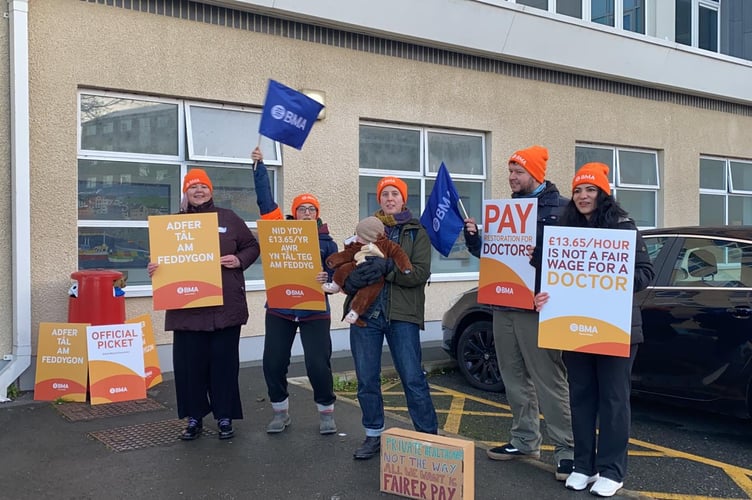The stock media narrative on the junior doctors’ struggle for fair pay persistently fails to get the story right.
Central to this is the slavishly repetitive and over-simplified claim that they’re demanding, in Wales, 30 per cent and, in England, 35 per cent. Full-stop. That’s it, no further explanation available or required.
Wrong. The doctors’ union, the BMA, has been trying for months to ram home the message that that those figures are indeed their ultimate demands, but they’re realistic enough to know they won’t be met all in one go. They’re quite prepared to negotiate on a basis of staged but guaranteed increments.
However, very few news outlets are making that clear, with the result that the abiding impression is of a group of irresponsible self-seekers indifferent to the well-being of national economies. The BBC is a particular offender. It has been quoting percentage pay demands in isolation, without clarification, with the inference that to expect such a rise straight off is one notch short of crazy.
The reality is very different. The trouble is that, strive as it insists it does to be impartial, the broadcaster is locked into an institutional bias manifesting as inferred disapproval of anyone going on strike, impelled presumably by its supposed constant need to keep on the right side of governments which control the flow of its life-blood - the licence fee - and which are always fundamentally antagonistic to industrial action of any kind.
We are now approaching a year of junior doctor militancy. During that time, the media, and pre-eminently the BBC, because of of its public service mandate, should have been vigorously drawing attention to the failure of successive Welsh and UK governments since 2008 to do the one thing that would have ensured this dispute never happened. This would have been to give modest annual pay rises to junior doctors.
A mere two-and-a-half per cent a year over those 15 years would have left the medics satisfied, legions of patients would not have had treatment and appointments postponed and waiting-lists would not have reached their current hazardous length.
This campaign of attrition, therefore, has been entirely avoidable and is straighforwardly a result of bad government - by central and devolved administrations.
Workers, and especially those in vital services such as the NHS, should not be put in the position of having to endure the stresses and discomfort of militant action to claw back, or hang on to, basic entitlements of fair pay and satisfactory working conditions.
We’ve become used to hearing the pleas of doctors, and before that nurses, that they do not want to be on strike, that they want to be looking after patients. No-one can doubt this is true, just as it is equally plain that the present industrial crises in the NHS - never forgetting that the nurses’ pay claim remains only partially met - are traceable in their entirety to bad government by both Labour in Cardiff and the Tories at Westminster. It was their job to ensure pay maintenance, and they’ve failed utterly. That neglectfulness has been added to by the failure of practically all media outlets to draw repeated attention to this dereliction of duty.
There may be a parallel here in an aspect of the sub-postmasters scandal, which saw the Post Office wreck the lives of workers with prosecutions over branch shortfalls we now know were caused by accounting software errors.
Despite exposés in Computer Weekly and Private Eye, the bulk of the media ignored the story for 14 years, until ITV’s clincher. Probably because journalists thought Post Office workers were not particularly important and could therefore be ignored. Similarly, despite the obvious importance of hospital doctors, their life-saving roles may well not be sufficiently appreciated by journalists who have never themselves occupied a hospital bed. In both cases, an inadequacy of political response is traceable partly to media silence or lack of interest.




